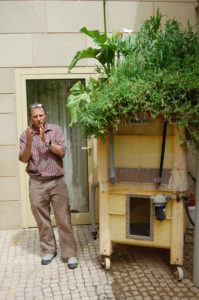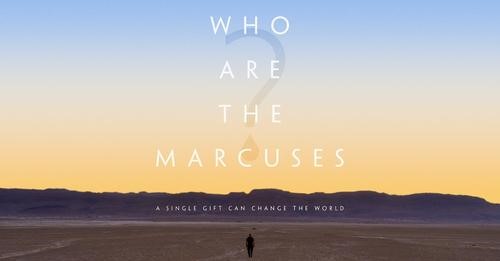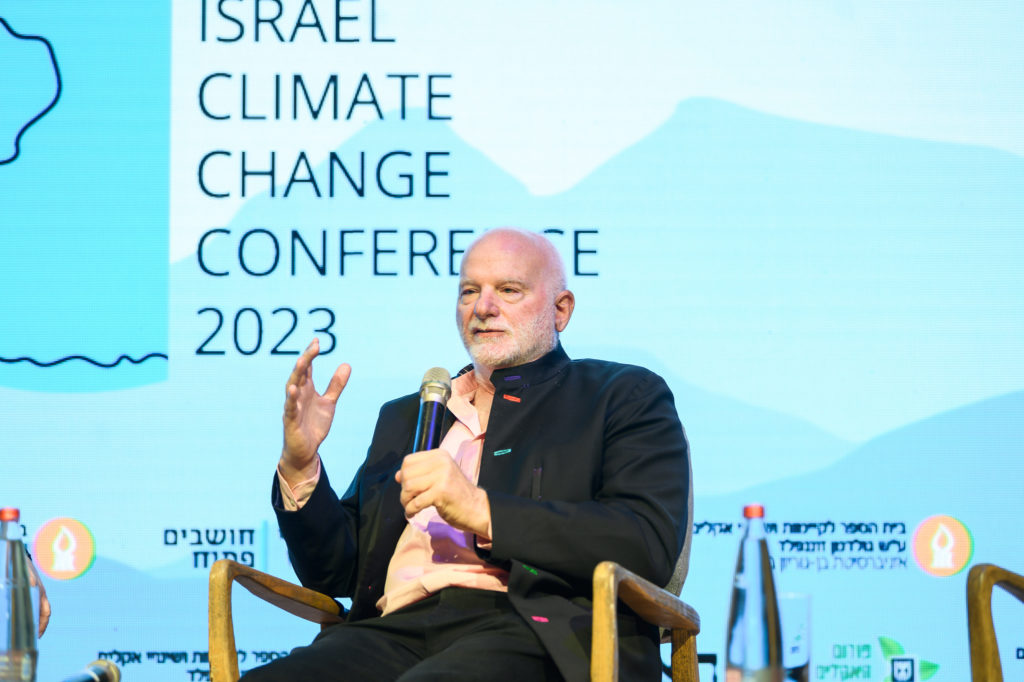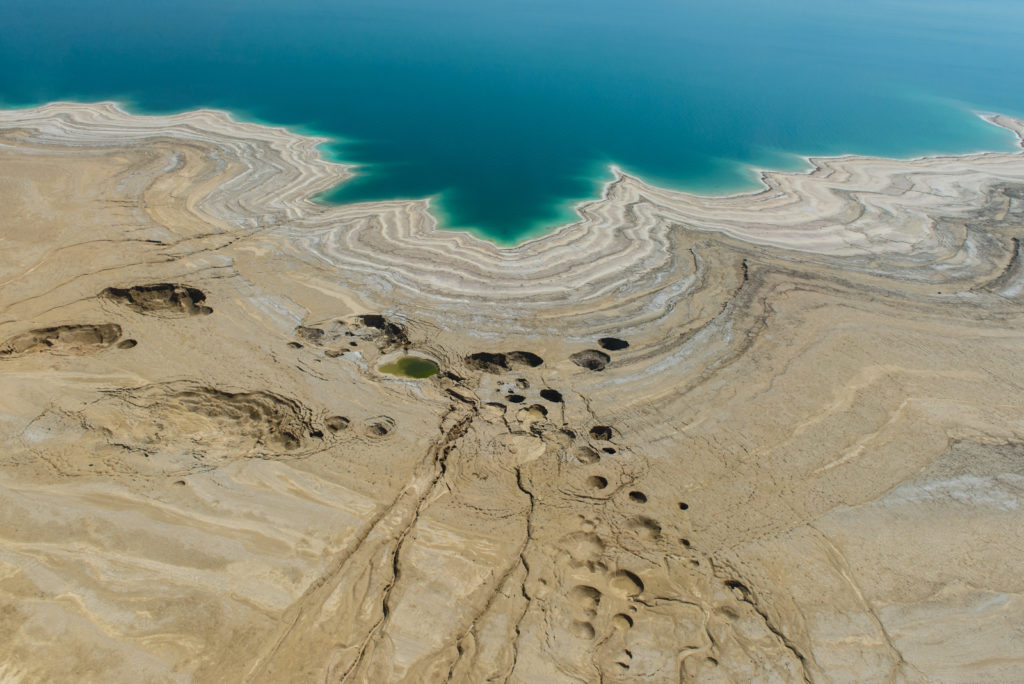
Israel’s Water Resource Ethic: More With Less
Israel’s Water Resource Ethic: More With Less
April 15, 2016
Circle of Blue — Because of its arid conditions and desert terrain, Israel’s inhabitants have always had to get creative when it comes to saving water. One example: The bricks of ancient remnants of desert farm terraces built some 5,000 years ago that anchored soil against erosion and trapped rainwater.
The necessity for clean abundant water remains, but the methods have improved dramatically. Today, the modern State of Israel reuses 85 percent of its wastewater, the most of any country in the world.
As to why Israel has done so well with water, Prof. Amit Gross of BGU’s Department of Environmental Hydrology and Microbiology has a ready answer: “Stress. The stress and pressure of the physical environment.
“We have to stop talking about waste and start considering water as a resource,” says Prof. Gross.

Prof. Amit Gross explains a prototype he invented for recycling graywater (waste water excluding toilet water) in individual homes.
Today, BGU researchers are working on a number of developments, including sensors and computer software to identify leaky water pipes; membrane designs that require less energy to purify water; distilling pure nitrate from manure so that fertilizer can be applied in micro-doses; producing electricity from treated waste water ; and further improving the drip irrigation and desalination methods nurtured by Negev researchers of the past.
“The only way to establish this nation was if we provided enough water everywhere,” says Prof. Noam Weisbrod, director of the Zuckerberg Institute for Water Research at BGU. “For this reason, Israel became a top model for water.”
In 1964, Israel built the National Water Carrier, a big canal system to move water from areas of relative surplus to areas of deficit; in Israel’s case a wetter north and a dry south. Its main branch stretches 130 kilometers (81 miles).
Today, five big desalination plants on the Mediterranean and dozens of smaller units produce between 60 and 75 percent of the country’s water supplies, using a process developed by BGU Prof. Sidney Loeb in the 1960s.
Authorities expect desalination to supply all of the country’s municipal water by 2020, and thanks to Zuckerberg Institute advances in reverse osmosis technology, new plants will produce some of the least expensive desalinated water in the world.
This post is excerpted from an article written by Brett Walton, who participated in Americans for Ben-Gurion University’s 2016 Murray Fromson Media Mission.



